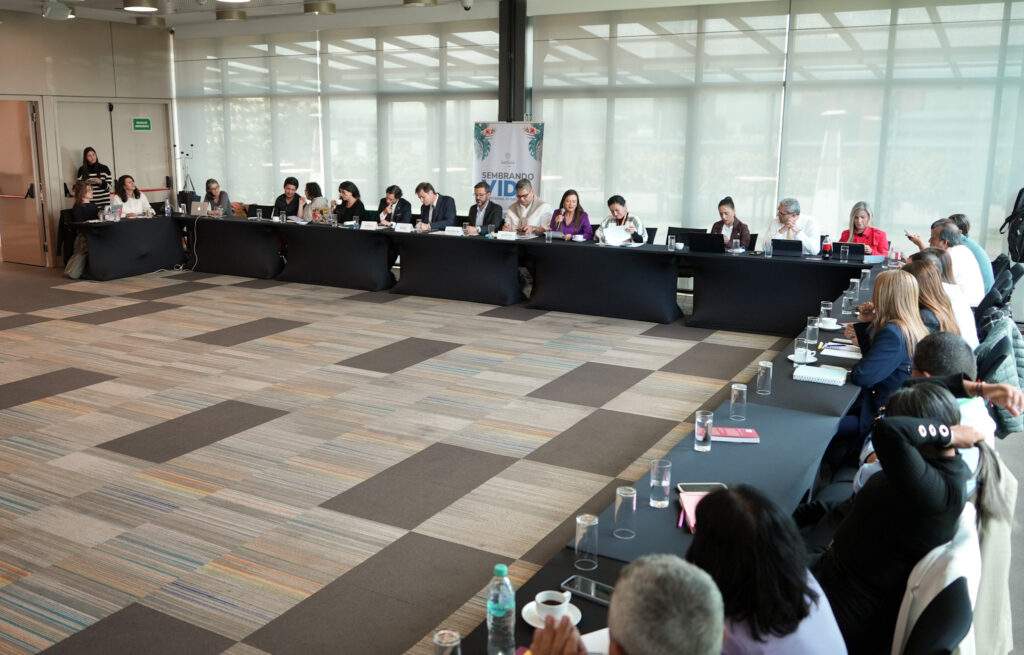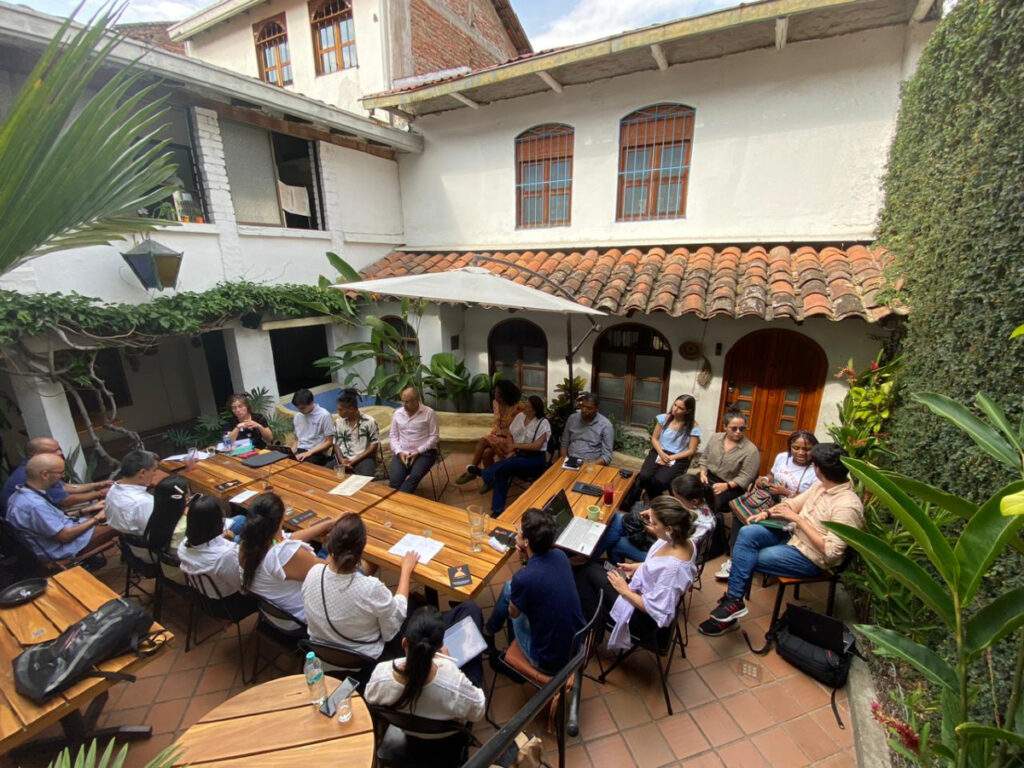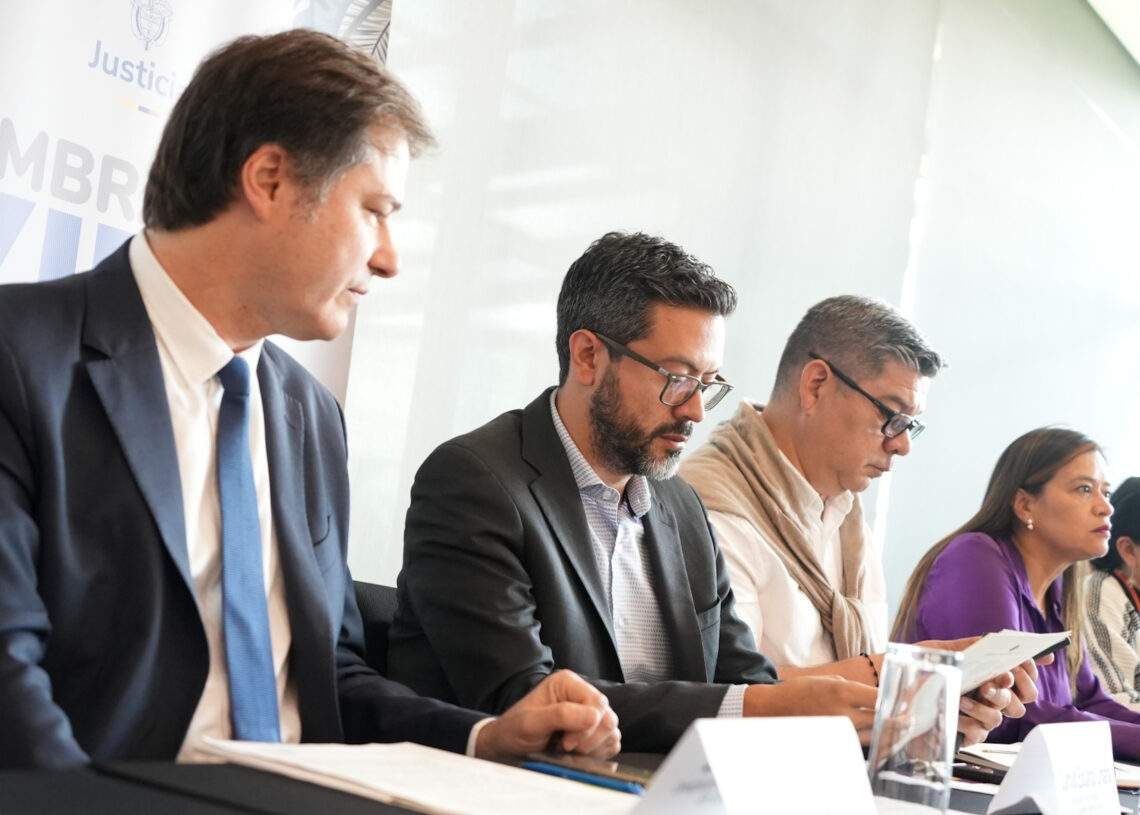The Ministries of Justice and Law and Health and Social Protection of Colombia held yesterday in Bogotá the meeting for the presentation of the results of the technical assistance process for the diagnosis and strengthening of Risk and Harm Reduction, in the framework of the National Drug Policy of Colombia. The technical assistance has been carried out with the support of the cooperation programme between the European Union and Latin America and the Caribbean for the strengthening of drug policies COPOLAD III, led by the FIIAPP/Spanish Cooperation and the consulting firm Episteme Social.
Colombia is currently drafting the policy action plan, which includes risk and harm reduction among its emphases, and seeks to reinforce actions to reduce the negative impact of drug use, facilitate access to care and treatment services, and promote the social inclusion of drug users.
Diagnosis and recommendations
The collaboration between Colombia and the European Union has been key to bring together local and national authorities and civil society organisations and jointly identify possible routes of articulation, opportunities for dialogue between public policies, integration into territorial public policies and funding mechanisms and sustainability to highly relevant actions in the care of public health, the reduction of vulnerabilities in the territory and the improvement of well-being, security and coexistence.
 During the presentation, José Ferreira, from the Delegation of the European Union in Colombia, stressed that “harm reduction is a pillar of the European Union, we are in tune with Colombia. This diagnosis, carried out together with civil society, is a fundamental step to guarantee the sustainability of the actions”.
During the presentation, José Ferreira, from the Delegation of the European Union in Colombia, stressed that “harm reduction is a pillar of the European Union, we are in tune with Colombia. This diagnosis, carried out together with civil society, is a fundamental step to guarantee the sustainability of the actions”.
For his part, the Colombian Vice-Minister of Criminal Policy and Restorative Justice, Camilo Eduardo Umaña, stressed at the opening of the meeting that “the drug problem is far from being solved with a police strategy, it must be solved with sufficiently coherent social strategies”. He also announced the publication of the study on mortality associated with the consumption of psychoactive substances 2013-2022.
Also, the Colombian Vice-Minister of Public Health, Jaime Urrego, added that “we are working on technical guidelines for the design, implementation and evaluation of spaces for lower risk consumption. In addition, we will update the guidelines for comprehensive care for people who inject drugs, including the provision of hygienic material, methadone maintenance programmes and overdose prevention in the community”.
COPOLAD III has contributed by providing technical assistance for the development of a diagnosis of the situation of damage and risk reduction in the territories of Cúcuta, Armenia, Pereira, Dosquebradas and Medellín. This analysis has included the mapping of institutional and community actors related to harm reduction, the identification of the political-institutional situation, financing and governance mechanisms for actions. These inputs will be used for the Harm Reduction Action Plan. In addition, in May of this year, COPOLAD III organised a study visit to Barcelona by a delegation of specialists from Colombia and Mexico to learn about the Catalan experience in harm reduction for drug use and to exchange good practices.
This work has been carried out through the coordination between Metzinères – shelter environments for women who use drugs – of Barcelona, FIP (Fundación de Ideas para la Paz) and Episteme Social, with the support of COPOLAD III. Similarly, civil society organisations in the territory have participated, such as Corporación Viviendo, Teméride, Surgir, Alpharero and Consentidos, as well as Dejusticia, the organisation in charge of promoting the implementation of the International Guidelines on Human Rights and Drug Policy led by, among other organisations, the UNDP, UNAIDS and the WHO.
Innovation Lab in Cali and Santander de Quilichao

En este sentido, durante los días 20 y 21 de septiembre, una delegación de COPOLAD III, Agirre Center y el Ministerio de Justicia y del Derecho de Colombia ha visitado Cali para seguir trabajando junto a los equipos locales y la sociedad civil e impulsar prototipos culturales y gastronómicos, entre ellos un restaurante comunitario, uno de los proyectos de inclusión social propuestos por la comunidad para abordar la inseguridad alimentaria y la exclusión social. En el laboratorio contó con la presencia del Embajador de la UE en Colombia, Gilles Bertrand.






